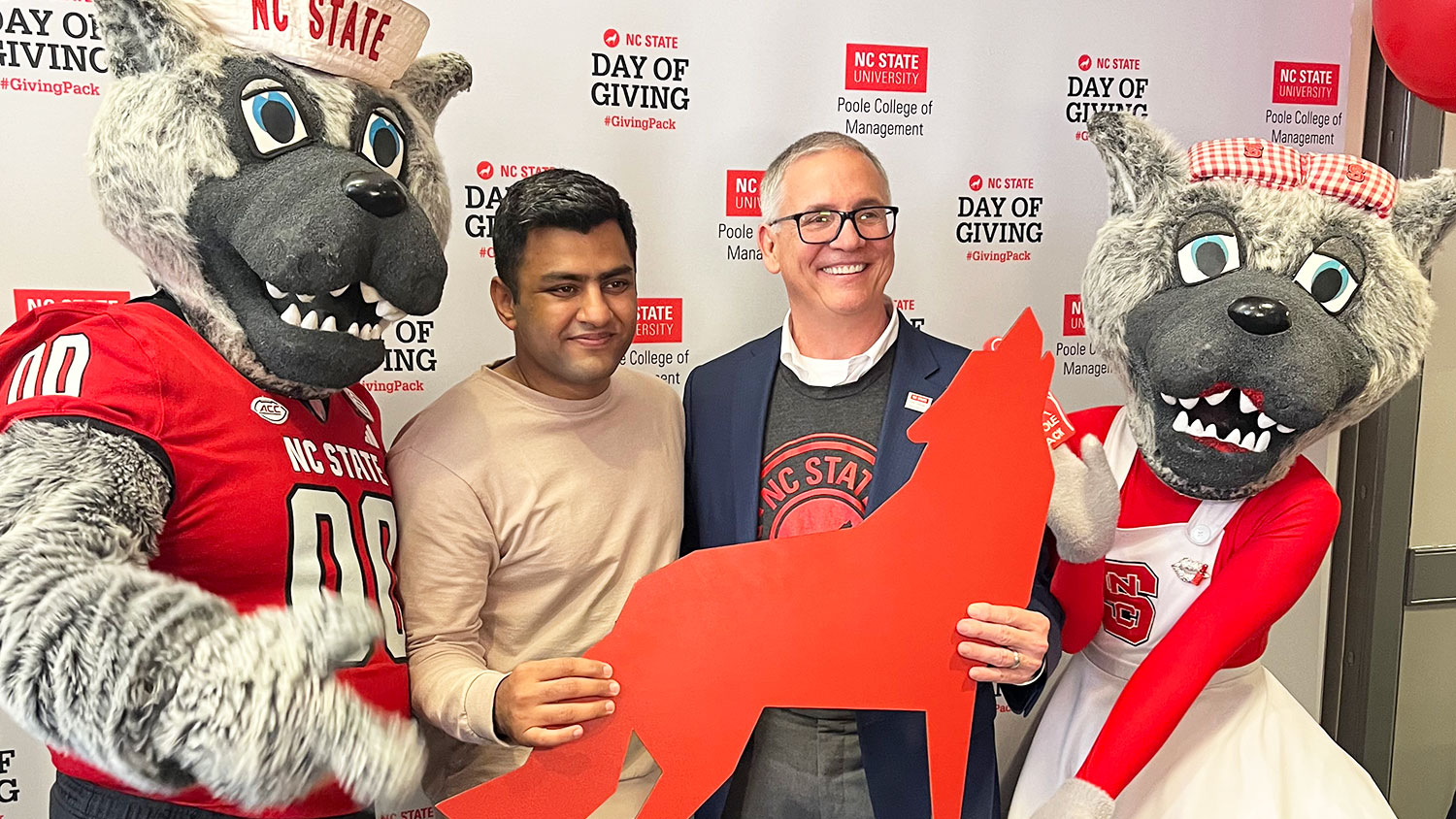Economics Doctoral Candidate Matthew Kutch Receives Second Place in NC State Symposium
The Economics Graduate Program is offered jointly by NC State’s College of Management and College of Agricultural and Life Sciences.
Kutch’s winning poster presentation is entitled, “ Are Complementary and Alternative Medicines Cost-Effective in Treating Common Mental Health Disorders? A Survey Approach.” “
Kutch, originally from Saginaw, MI, pursued his undergraduate degree in economics at Central Michigan University where his undergraduate advisor and several faculty members encouraged him to pursue graduate work. He chose NC State’s Economics Graduate Program because he said he felt there is a close, intimate working relationship between faculty and students. Plus, he appreciates avoiding avoid Michigan’s winter weather.
After years of formal training in the field of economics, Kutch says that he still feels “. . . the strongest draw to health economics and teaching.” Consequently, his graduate research explores a cost-effectiveness analysis of complementary and alternative medicine – yoga, acupuncture, meditation, herbal remedies – in treating common mental health disorders.
Kutch said he wants to know if these medicines are a good use of healthcare dollars.
His study, he said, “compares the outcomes and the costs of traditional therapies – drugs and psychotherapy – to traditional therapies plus these complementary medicines to see if these complementary medicines are a good ‘bang for the buck’ in treating mental health disorders.”
Kutch is not pioneering new territory with his research; rather, he is applying existing techniques to a data set in a way that has not been done previously. Also, Kutch says that his research “uses a large scale observational data set and attempts to correct for any self-selection bias by using variation in insurance coverage by rural and urban parts to the census regions, to explain the decision to seek treatment.” He said he hopes that his results will add to the existing evidence on the usefulness of complementary and alternative medicine.
To date, there appears to be some evidence for the cost-effectiveness of complementary medicine with anxiety and neurotic disorders, rather than depression and affective disorders. Likewise, there are positive results for patients using psychotherapy instead of drug therapy. An additional finding is that there is some evidence suggesting a difference in cost-effectiveness by certain demographics. Kutch suggests that providers of “mental health services should be aware of the potential, though not universal, benefits of complementary and alternative medicine.”
NC State’s Graduate Student Research Symposium afforded Kutch an opportunity to create a poster presentation summarizing his graduate research.
Creating a winning poster goes a bit further for Kutch than simply receiving the award.
“I am mentoring three undergraduate research projects at Elon University and their final presentation to the faculty will be a poster presentation,” he said. “I viewed creating my poster as an opportunity to learn the basic skills and helpful hints that I could pass it on to my mentees. In that way, the actual poster creation process reinforces the best of graduate education.”
When Kutch isn’t exploring cost-effective alternative medicine or mentoring undergraduate students, he is a big fan of running in his down time. He says that “there is nothing better than to get out on some trails for a couple of hours on a Saturday for a good run.”
Kutch also says that his parents have played a big role in his interests and the direction his career has taken, and they definitely been a big source of his support.


